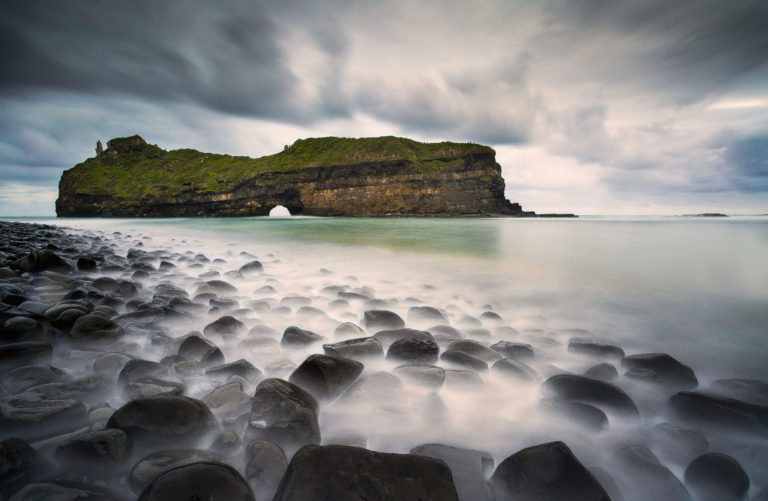Rain on your parade
Always take the weather with you, sang Crowded House. But because you can’t, there are ways in place that you can use to salvage some travel shots when the elements are playing dirty. Andreas Eiselen tells you how, using this image by photographer Rudi van den Heever.

Equipment Canon 5D MkIII, Canon MkII 16-35mm f/2.8 (with remote shutter release and Lee Big Stopper filter), ISO 100, f/11, 90 sec.
Take it yourself
On overcast or dreary days, slow down the shutter speed to capture dramatic movement in clouds or water.
Equipment
You will need a strong, sturdy tripod – you can’t take long exposures without one. Use a wide-angle lens and a set of neutral density filters. Instead of the camera’s built-in timer, you can use a cable release to trigger the shutter remotely. A rain cover for your camera and waterproof poncho for you and your camera bag will keep things dry in mist or drizzle.
Settings
Set the ISO at 100 or, better still, as low as 50 if your camera allows. Use a small aperture, between f/11 and f/18. Both these settings will enable you to get the slowest shutter speed possible. Neutral density filters can be used to slow the shutter speed even more – you want it to be at least 30 seconds or even longer.
Practical
Include interesting foreground detail when framing your image. Get low and close to rocks in the water or use a strong focal point.
Use a cable release or the camera’s built-in timer to trigger the shutter. Physically pressing the shutter button will cause camera shake and your image won’t be sharp.
Time the shot for beautiful movement in the waves breaking or flowing around the rocks, or for cloud developments in the sky.
The longer your exposure the more movement you’ll get in the clouds and water, up to the point where the water becomes ethereal, almost like mist – as in Rudi’s shot. This is referred to as ghosting (this is not the same as when unwanted objects like halos appear in images, which is also sometimes called ghosting).
Starter Tip Embrace the bleak outdoors by shooting in black and white. Remember, too, that some subjects, such as a lighthouse, will be far more dramatic against a stormy, textured sky.
Amateur Tip Look down – puddles create interesting reflections. Or look around and capture the expressions of people scurrying about in the rain.
Pro Tip Experiment with different ND filters to push your shutter speed longer than a minute, which can give you beautiful ghosting and reflection effects.
Rudi says…
The weather was ominous and the intermittent rain made me hesitant to hike down to the famous Hole in the Wall on the Wild Coast near Coffee Bay. But I went anyway, and did what I could to get some shots. For this image I used a neutral density filter and a sturdy tripod to keep the camera perfectly still for the long exposure.
Rudi’s Tip: Use a sturdy tripod to prevent camera movement, and the lowest ISO your camera allows to reduce noise for such a long exposure.
You may also like
Related Posts
Wildlife photographer, Sam Rowley, captured a remarkable shot of two mice brawling on the London...
read more
This year's winners of The British Ecological Society's 'Capturing Ecology' photographic competition have been announced....
read more
We picked the brain of budding teen photographer Branson Meaker, whose highly commended Botswana wildlife...
read more